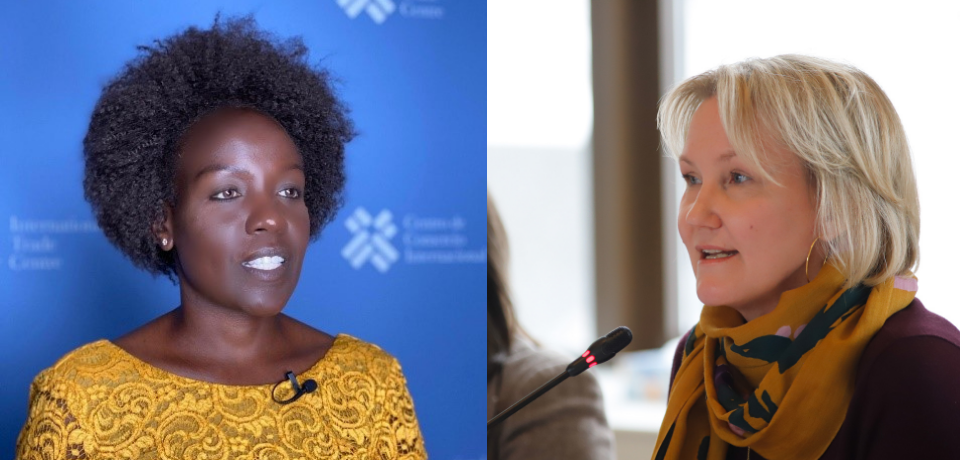Author: Tiziano Breda
BiographyTiziano Breda
Tiziano Breda took on the role of Analyst for Central America at Crisis Group in January 2019. He conducts extensive field research, provides analysis, and proposes policy initiatives to relevant governmental, international and non-governmental actors to address key issues linked to violent crime, migration and political instability in the Central American region.
Tiziano first joined Crisis Group in April 2017, first as an intern and then as EU Advocacy & Research Assistant in the Brussels office, and as Research Assistant in the Bogotá office. He previously wrote for different online magazines, mainly regarding European and Latin American affairs.
He holds a Bachelor of Arts in Sociology from the University of Padua and a Master’s Degree in International Relations from the University of Bolonia, Forlì. He has also specialised in peace studies and conflict resolution by taking courses at the Johns Hopkins University (SAIS) and the Universidad Nacional de Colombia.

Illustration by Brandon Serbec
In this interview, Crisis Group’s Analyst for Central America, Tiziano Breda, discusses how governments and gangs in Central America are using the pandemic as an opportunity to further their own interests, but how more positive opportunities are also appearing—opportunities to reimagine state-building and economic models for more inclusive, equitable societies.
He was interviewed by Carla Carpio, Communications Assistant at the Global Centre for Pluralism on August 21, 2020.
The following is a transcript of the interview, which has been edited for brevity and clarity.
Carla: How has COVID-19 impacted the political and economic situation in Central America?
Tiziano: At the political level, COVID-19 has exacerbated acrimony and polarization between governments and their oppositions. This is happening throughout the region, but particularly in countries with upcoming elections. The management of the health crisis has been politicized and turned into a highly charged wedge issue being used to vanquish opponents. For example, in El Salvador, President Bukele openly accused opposition parties of hindering his ability to contain the spread of the virus, a failure that would benefit the opposition in next year’s polls. In Honduras, ruling parties are allegedly prioritizing their affiliates when it comes to humanitarian hand-outs. In Nicaragua, the management of the crisis by President Ortega has rekindled tensions between the government and the opposition movements that were born out of the 2018 uprising. We have also seen a quick erosion of the legitimacy of governments throughout Central America, particularly in countries where officials have seen the crisis as an opportunity to foster corrupt practices.
At the economic level, this has caused a lot of strain and contraction in a region already wrecked by high levels of poverty and inequality. We have seen a sudden drop in exports, tourism and remittances (though the latter have been recovering since) which has prompted an immediate spike in the levels of hunger and food insecurity throughout the region. The full consequences of this crisis are yet to be seen.
Carla: This global health crisis has revealed issues around equity and inclusion across all sectors. How has the pandemic affected inequality in Central American countries?
Tiziano: The pandemic has revealed the structural inequalities plaguing this region, particularly in relation to access to health care, education, social security benefits, jobs, or even just water. We talk about washing our hands often to avoid contracting the virus, but, as the crisis has revealed, large swathes of the population don’t have access to clean water or, quite often, water in general.
Richer members of the population were able to stay home and work from home, and they were advocating for everyone to do the same. However, the vast majority of the population living in poverty and working in the informal economy could not afford to do that. The pandemic started as a more elite virus, hitting those who were able to travel to Europe or Asia, but it quickly spread into impoverished suburban and rural areas where generally people can’t afford to do a test, or where health care facilities are weak.
This crisis has also revealed the inequality embedded in the decisions surrounding the governments’ responses. Economic corporations have been lobbying quite hard against socioeconomic relief packages or suspensions of the payment of electricity and water bills, which has affected, again, poorer parts of the populations who could not afford to pay bills during the crisis.
Carla: You have done extensive research on organized crime in El Salvador. In your recent Crisis Group report, you explored the reasons behind the 60% drop in homicides in the country. How do you expect the pandemic to impact organized crime and gang violence in El Salvador? Is there a potential for long-lasting peace?
Tiziano: El Salvador has been experiencing extraordinarily low levels of violence – the lowest in the country’s recent history. In the report, we write that the drop in homicides may not stem solely from the government’s security strategy, but rather from an informal understanding that is being built between authorities and gangs, which a recent investigation published by El Faro on alleged negotiations between government officials and MS-13 leaders appears to confirm. This was already happening before the pandemic, but we’ve seen further hints that the pandemic actually strengthened this equilibrium. Throughout the crisis, we have witnessed historically low levels of violence: two daily homicides in a country which five years ago was experiencing around 25 per day.
We have seen that gangs have aligned in some way with the government to contain the spread of the virus. For example, they are trying to discourage big gatherings in communities under their sway, and they are instilling order to the way churches or even, allegedly, state authorities are distributing humanitarian aid. They are even enforcing quarantines in some places. However, their rationale for doing this is far from benevolent. First of all, they started from the assumption that if their members or their relatives contracted the virus, they would not be attended by hospitals and, if they were, they would risk being detained immediately afterwards. Moreover, they are taking advantage of the crisis to reassert their territorial control and try to gain legitimacy in the communities in their grip. They are also trying to position themselves to have a stronger sway over the government in the future. By scaling back the homicides and helping out with the crisis, they are strengthening their influence so that they can eventually advance their demands.
Although we’ve seen extraordinarily low levels of violence in the country, the gang issue has not been resolved. This fragile equilibrium can easily be reversed if further measures are not taken.
Carla: What kinds of policy responses should be prioritized in El Salvador to address organized crime and sustain the drop in crime levels? How could these responses improve the lives of the most marginalized groups in the country?
Tiziano: We have identified three main areas the government should address to provide enduring solutions to the gang issue in the country. First, the government should invest more in socioeconomic development projects in communities, which it has not done for decades. The government should also shift away from a repressive approach in prisons to offer rehabilitation and reintegration opportunities for gang members. Finally, it should strengthen the professionalization of the security forces, who are also responsible for producing much of the violence and a good portion of the violent deaths in the country through extrajudicial killings.
Of course, the pandemic will affect the government’s ability to secure funds for investing in these three areas. However, this crisis also offers an opportunity in the sense that the interaction between officials and local dwellers has increased during the pandemic. Now, of course, it is focused on humanitarian hand-outs, but this increased interaction should be used by the government to improve the relationship between the state and these marginalized communities, which has been very grim over the past few decades. Authorities could also use this interaction to assess local public services and economic needs and then draft tailored programs to improve the livelihood of the people in these communities.
If gangs continue to maintain low levels of violence and collaborate with authorities in ensuring humanitarian and medical access to the communities, then the government might also envisage opening some structured talks with the gangs, communities and victims. They could work towards drafting a more structured negotiation with the aim of eventually dismantling and demobilizing this criminal structure and reintegrating members into civilian life.
Carla: What do you hope Central American countries will learn from the pandemic?
Tiziano: Hopefully, these countries will learn the importance of having robust, functioning public services, such as health care, education, and access to water and electricity. This means having a state presence that is not limited to security forces patrolling or very temporary interventions in communities, but to strong public services. All of this is crucial in the state-building of these nations. Marginalized communities must feel involved in the societal project, and not at the mercy of political and economic leaders in the capitals. This is intimately related to the spread of illicit and criminal activities, including gang activities.
In economic terms, this crisis is unveiling the structural shortcomings of having economies relying heavily on remittances or on foreign aid for social and local development projects, or the shortcomings of exporting the best products and relying on imports for domestic consumption. Hopefully this pandemic will prompt governments to re-envisage their economic models and consider a new way forward.




